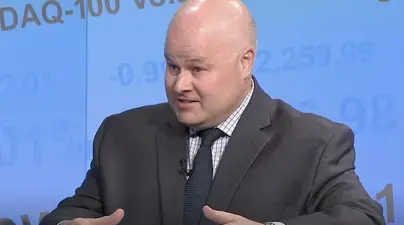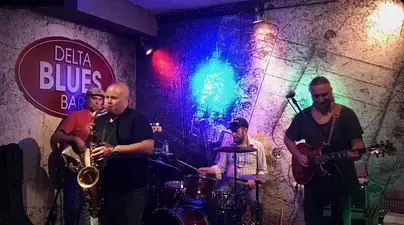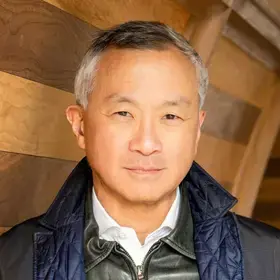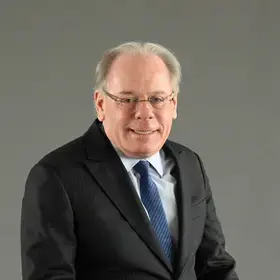When I finished my master’s in Strategic Communication at Columbia University in 2012, I was honored to be invited back as teaching associate, and I was surprised when my professor encouraged me to apply for a Fulbright Award. It seemed like an awfully lofty goal. But his suggestion lit a spark. This year, I was one of five U.S. Scholars chosen by the Fulbright Commission to teach in Bulgaria.
I came to Bulgaria to share my expertise in strategic communication. Since the end of communism, the country has struggled to find its footing among Western democracies. It suffered a severe financial crisis in the 1990s, losing one-fifth of its population to emigration. Though it became a member of the European Union in 2007, poor job prospects and government corruption have led many young people to seek their fortunes elsewhere. Strategic communication is critical both to a free market and a vibrant democracy.
My semester at the American University in Bulgaria (AUBG) put me in new and challenging situations, testing my ability to teach and communicate across cultures.
Here are my five biggest takeaways.
1. Improv transcends language barriers.
In March, I led a public-speaking workshop for AUBG’s English for Journalists program. The program was designed to help working journalists improve their English, reducing their reliance on Russian-language news. Because of varying levels of language ability, some students were nervous about participating. I was nervous about teaching journalists for the first time. But we began our session with improv exercises—as I often do when teaching communication—and the anxiety quickly faded. Improv helps because participants are able to connect in a noncompetitive way, their natural spontaneity rising to the surface. Unlike typical workplace communication, it’s not a competition of ideas.
2. Be your own coach. (Video helps.)

Jesse Scinto on Bloomberg TV Bulgaria
Among the journalists were some who worked for Bloomberg TV Bulgaria. They invited me to be an on-air guest for the “On the Move” program. I discussed persuasion as it relates to Mark Zuckerberg’s Congressional testimony and the Sergei Skripal spy-poisoning case. The interview went well, but the camera doesn’t lie. I caught myself looking down at certain points as I collected my thoughts. In my classes, I teach students the importance of eye contact for executive presence. The video allowed me to see my own areas for improvement. In truth, there’s no such thing as perfection in public speaking. All we can do is coach ourselves.
3. Say “yes” to every speaking opportunity. Talk yourself into it.
While judging a high school debate contest, I met the deputy mayor of Sevlievo, a small industrial town in the north. He invited me to speak to the local teachers’ association and meet with high school students. There was one caveat: The whole thing would have to be translated. I was a trepidatious at first. The first rule of public speaking is to know your audience so you can make yourself relevant. I almost didn’t follow up. But I eventually talked myself into it, thinking, “This whole Fulbright experience once seemed like a stretch, so what’s one more?” In communication literature, phrases like these are called “coping statements,” and they’ve been proven to reduce anxiety.
The event turned out to be fun. I led interactive workshops on public speaking and critical thinking. We did improv. We even got to visit the local toilet factory, an important source of jobs for the community.
4. Don’t forget your roots.

Jesse Scinto playing the saxophone at the Delta Blues Bar
On our first night in Sofia, we discovered a blues bar just down the street from our hotel. For me, it was a surprisingly familiar place. In my first career after college, I was a professional saxophonist. I toured with well-known blues acts (Sam Lay, Big Jay McNeely), produced two albums, and performed at the New Orleans Jazzfest. After entering academia, I set the sax aside. But I brought it with me to Bulgaria, figuring it would be another way to connect with people beyond the university. I was pleased to make my European debut on May 16 at the Delta Blues Bar. Sometimes people talk about “bringing your whole self to work.” You should, because it humanizes you. In order to trust, people need to know where you’re coming from.
5. Choose goals that elevate you.
The Fulbright experience has been extraordinary. However, this wasn’t my first try. I had two prior (unsuccessful) attempts. The application looks for evidence of leadership, and when I first applied, I didn’t have much. I started publishing and giving guest lectures to meet the demands of the application. As I pursued my goal, I grew personally and professionally. The pursuit elevated me. It was a worthy challenge.
Persistence was important, but I often think of the encouragement I received from my Columbia professor. He saw me as someone who could win a Fulbright. That made all the difference.


